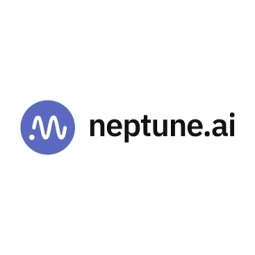- Analytics & Modeling - Machine Learning
- Application Infrastructure & Middleware - Middleware, SDKs & Libraries
- Equipment & Machinery
- Oil & Gas
- Quality Assurance
- Computer Vision
- Visual Quality Detection
- Testing & Certification
- Training
ReSpo.Vision is a company that uses computer vision and machine learning in sports data analysis to extract 3D data from single-view camera sports broadcast videos. They provide players, scouts, managers, clubs, and federations with an unmatched depth of knowledge. The company concentrates on football (soccer) and targets sports clubs, leagues, bookmakers, and media. Their machine learning team works on all aspects of machine learning, including collecting raw data, labeling it, and adding new datasets to training and evaluation pipelines. They constantly work on improving their core pipeline models to improve the quality of output data they send to their customers.
ReSpo.Vision, a company specializing in sports data analysis, faced significant challenges in managing their machine learning (ML) pipelines at scale. The company uses computer vision and machine learning to extract 3D data from single-view camera sports broadcast videos, providing valuable insights to players, scouts, managers, clubs, and federations. Their ML team collects raw data, labels it, and adds new datasets to training and evaluation pipelines. However, as they scaled up the number of matches processed, the number of pipelines ran to build different models also increased, making it extremely hard to manage the workflow and debug pipeline failures. They had difficulty in debugging issues with the experiment results, figuring out if their pipelines all finished successfully, and comparing the results of each run to the previous runs. Additionally, it was problematic to know what dataset or parameters were used for each experiment run. They needed a better way to manage their pipeline runs and make the best use of their resources.
To address these challenges, ReSpo.Vision integrated Neptune, a tool they had previously used, into their workflow. Neptune met their requirements for easy integration with Kedro, high readability for logging tons of pipeline metadata in real time, and an accessible and intuitive comparison feature for pipeline experiment runs. With Neptune, they gained control over their process, with all the information needed to debug any experiment in one place. They could easily compare pipelines, assess the outputs’ performance and quality, and confidently decide which models were the best. They also leveraged the summary statistics provided by Neptune to know what pipelines they should run based on the output of previous runs and if there were issues with the last run. Additionally, they used Neptune’s intuitive UI to communicate pipeline results to clients and other stakeholders who are not technical. They also used Neptune’s compute monitoring capability to make the most of the compute used by their pipelines.

Case Study missing?
Start adding your own!
Register with your work email and create a new case study profile for your business.
Related Case Studies.













